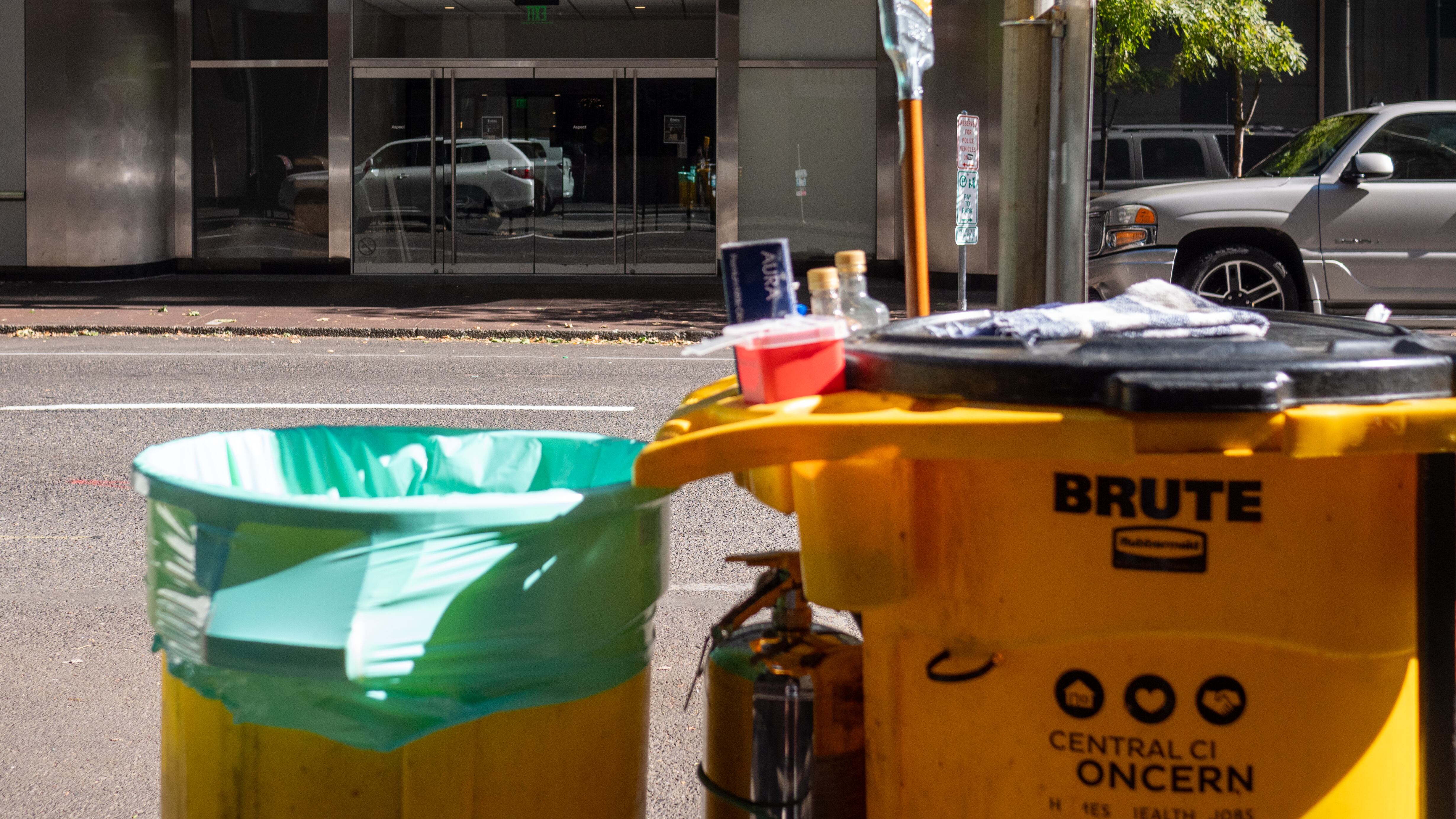A task force put together by Gov. Tina Kotek to think up a plan to combat downtown Portland’s ills met for the first time Tuesday morning. The full 47-member task force will meet three times between now and October, and subcommittees of the task force that focus on specific issues like homelessness and falling property values will meet independently.
The first meeting of the task force took place at the Columbia Square office building in downtown Portland.
According to two members of the task force who spoke with WW on condition of anonymity, Tuesday’s meeting was primarily an overview of the challenges all of the members are keenly aware of in downtown Portland: open drug use, mental health crises and inadequate social services to help those living on the streets. Kotek and Mayor Ted Wheeler took turns speaking to members of the task force, all of whom wore name tags and sat on chairs in a large conference room at Columbia Square.
An economist presented a slideshow of downtown’s ailing economic health, including high office vacancy rates, plateaued foot traffic and falling property values. One of the task force members called the Tuesday meeting “appropriately boring.”
The task force is a stacked roster of downtown law firm presidents, leaders of companies with a wide central city office footprint, nonprofit executives, Mayor Wheeler, Multnomah County Chair Jessica Vega Pederson, U.S. Sen. Ron Wyden (D-Ore.), U.S. Reps. Earl Blumenauer and Suzanne Bonamici (D-Ore.), state Reps. Janelle Bynum (D-Happy Valley) and Rob Nosse (D-Portland), Metro President Lynn Peterson and small business owners, among others.
Members of the task force will soon receive subcommittee assignments. The five subcommittees will address central city property values, livability, housing and homelessness, community safety, and taxes, respectively. (If someone despises their assignment, according to task force members, Kotek said she could switch them.)
Mayor Wheeler brought with him a laundry list of requests. Some are specific to Gov. Kotek—like increasing funding for trash cleanup along highways, deploying 96 Oregon State Police troopers to Portland to enforce traffic laws, committing $21 million to the mayor’s sanctioned encampments, funding for building a sobering center that the city has been without for years now, deploying bond money to make it easier for developers to build affordable housing, and chipping in state money to repair tent-ringed Union Station.
Kotek has said previously that once the task force comes up with a plan, it will be presented at the Oregon Business Summit in December. The recommendations would also align with a spring legislative session—a likely time for the city to lobby for funding for particular projects.
